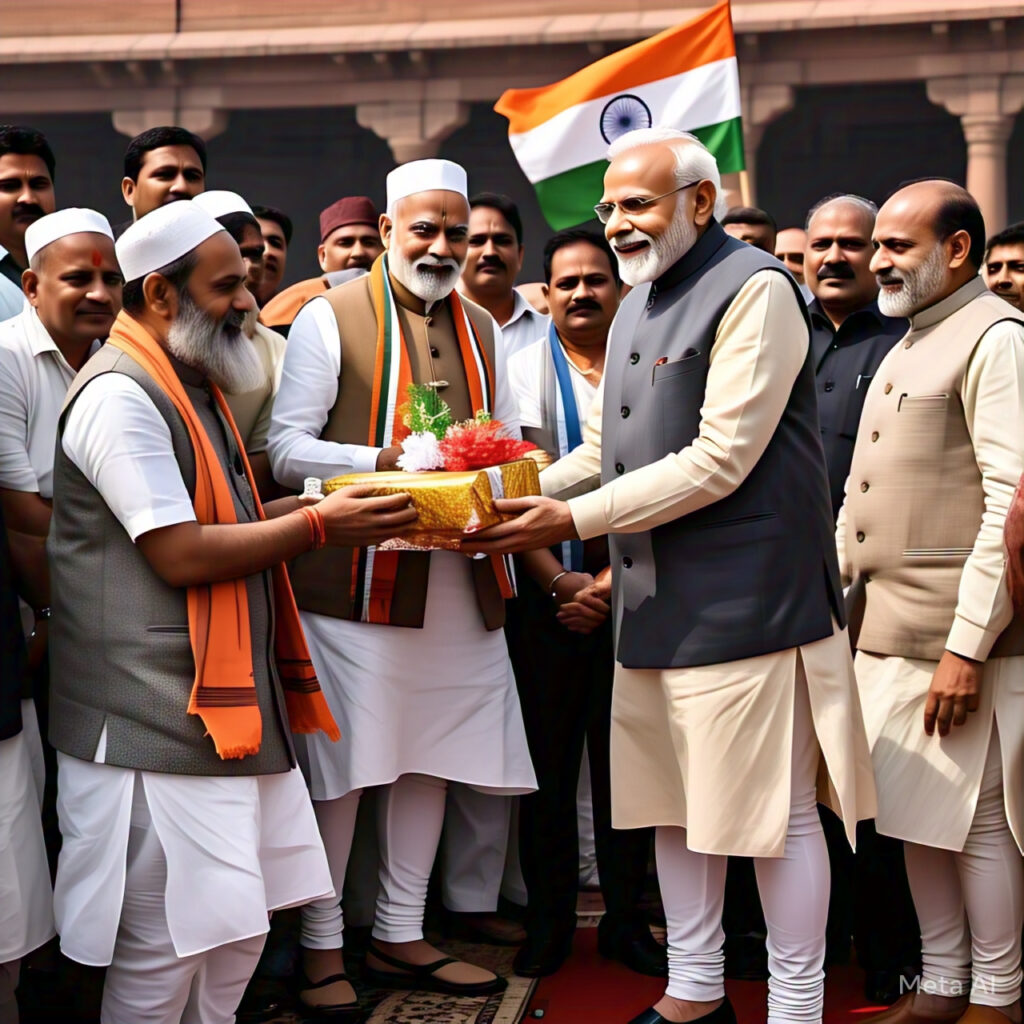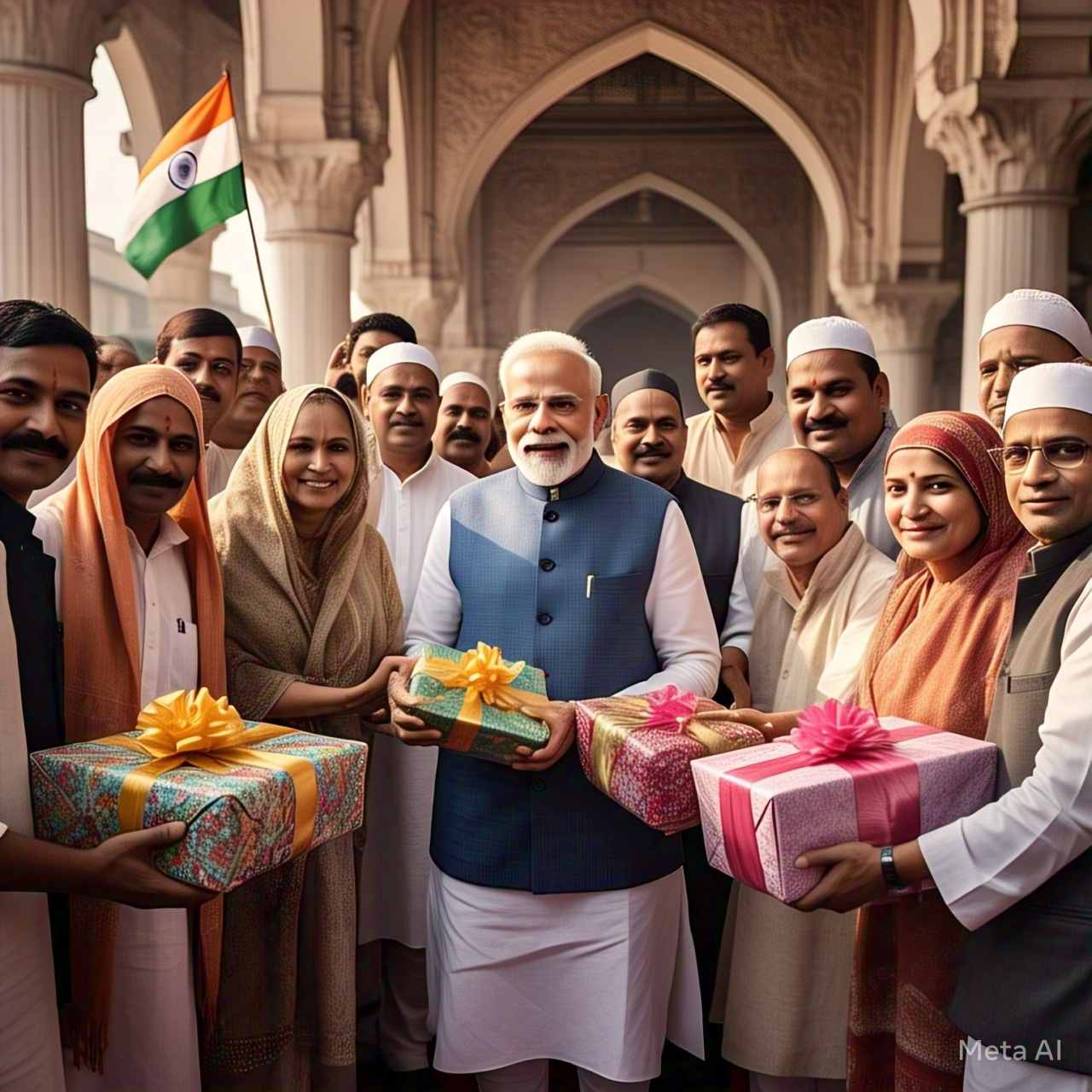In the ever-evolving landscape of Indian politics, Prime Minister Narendra Modi’s recent Eid gift initiative has sparked a flurry of reactions. Dubbed “Saugat-e-Modi,” this outreach program aimed to distribute Eid kits to underprivileged Muslim families across the country. While the gesture was ostensibly about fostering inclusivity, it has also raised eyebrows, with critics questioning its timing and intent.
This move, like many others in the political playbook, walks a fine line between genuine outreach and strategic maneuvering. But as the dust settles, one question looms large: Is this initiative a step toward bridging divides, or is it a misstep that risks alienating the BJP’s core voter base?
The Initiative: A Closer Look
The Eid gift kits, which included essentials like food, clothing, and traditional treats, were distributed in various regions with significant Muslim populations. The program was widely publicized, with images of smiling families receiving their kits making rounds on social media. On the surface, it seemed like a heartwarming gesture aimed at fostering goodwill.
However, the timing of the initiative—just months before key state elections—has led many to view it through a political lens. Critics argue that the move is less about inclusivity and more about securing votes from a demographic that has traditionally been skeptical of the BJP.
The Reaction: A Mixed Bag
The response to the initiative has been anything but uniform. On one hand, many recipients expressed gratitude, praising the government for its efforts to reach out to marginalized communities. On the other hand, there were reports of logistical hiccups, with some families claiming they were left out of the distribution process.
More significantly, the initiative has sparked discontent among the BJP’s core Hindu voter base. Many loyal supporters feel that their concerns are being sidelined in favor of appeasing a demographic that has historically not supported the party. This sentiment has been amplified on social media, where hashtags criticizing the initiative have gained traction.
The Political Math: A Risky Equation
From a strategic standpoint, the initiative is a high-stakes gamble. The BJP has long relied on its core Hindu voter base for electoral success. Any move that risks alienating this group could have far-reaching consequences. At the same time, the party has been making concerted efforts to broaden its appeal, particularly among minority communities.
The challenge lies in striking the right balance. While the Eid gift initiative may win over some Muslim voters, it’s unlikely to result in a significant shift in voting patterns. Meanwhile, the risk of alienating the core voter base looms large. It’s a classic case of trying to please everyone and ending up pleasing no one.

The Bigger Picture: Inclusivity vs. Identity Politics
The controversy surrounding the Eid gift initiative highlights a broader issue in Indian politics: the tension between inclusivity and identity politics. On one hand, initiatives like this are essential for fostering social harmony and addressing historical inequalities. On the other hand, they can be perceived as tokenistic gestures aimed at securing votes.
For the BJP, this tension is particularly pronounced. The party’s rise to power has been built on a platform of Hindu nationalism, which has often been at odds with its efforts to reach out to minority communities. Navigating this dichotomy is no easy task, and the Eid gift initiative is a case in point.
The Verdict: A Tightrope Walk
As the saying goes, “Lalach mein dono gaye, mala mili na Ram.” In its quest to expand its voter base, the BJP risks losing the very foundation that brought it to power. Whether the Eid gift initiative will pay off or backfire remains to be seen, but one thing is certain: it has added a new layer of complexity to the political narrative.
In the end, the success or failure of this initiative will depend on how it is perceived by the electorate. If it is seen as a genuine effort to foster inclusivity, it could pave the way for a more harmonious political landscape. But if it is viewed as a cynical ploy for votes, it could end up doing more harm than good.



